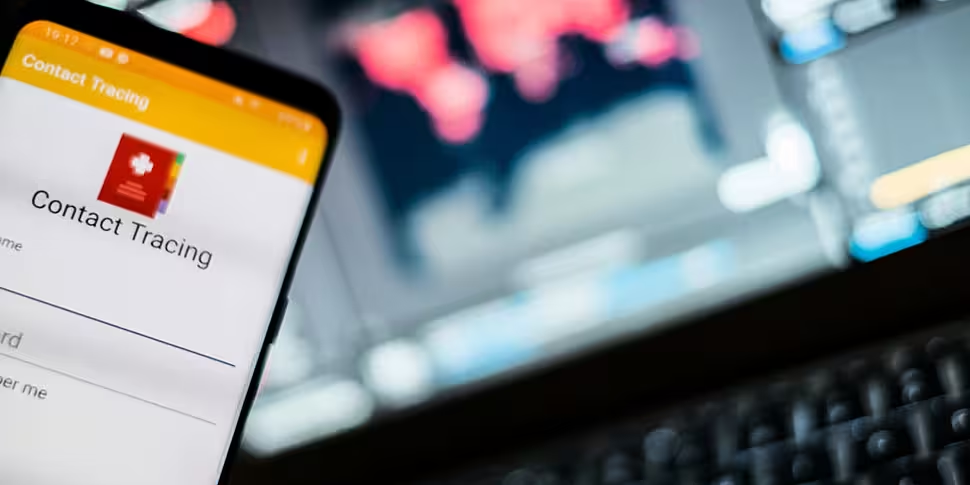A new study by researchers in Dublin has highlighted concerns about the accuracy of Bluetooth technology for contact tracing apps.
It found it is likely to be 'challenging' to use the wireless technology to reliably detect when people using such apps are within two metres of one another.
Contact tracing apps - which use wireless Bluetooth technology to record people's close contacts - are being developed by governments around the world as part of their response to the COVID-19 crisis.
The hope is that the apps would allow people to be quickly informed if they have come into contact with someone who has tested positive for coronavirus and therefore need to self-isolate.
The HSE is hoping to begin trialling its own opt-in contact tracing app here by the end of the month.
As more countries work on such apps, researchers at Trinity have tested a number real-world contact tracing scenarios
The researchers measured Bluetooth accuracy in a number of locations and situations, including in a supermarket, a train carriage, sitting around a meeting table and walking outdoors on a city street.
They found that creating "accurate methods for proximity detection based on Bluetooth LE received signal strength is likely to be challenging and time consuming".
They also highlight specific measures that could improve the accuracy of the signal - such as people placing their phones on tables during meetings, or carrying phones close to the outside surface of a handbag.
Signal 'can very substantially'
Professor Doug Leith - a researcher at the CONNECT Centre in the School of Computer Science and Statistics at Trinity College Dublin - conducted the study alongside his colleague Dr Stephen Farrell.
Prof Leith said their study shows the strength of a Bluetooth signal "can vary substantially" depending on different factors, such as whether people carry their phone in their back or front pocket.
He explained: “We also found that walls, furniture etc could have a significant effect, especially metal objects such as the shelves and fridges in a supermarket shopping aisle or in a railway carriage or bus.
"For example, for two people walking around a large supermarket we found that the Bluetooth signal strength is much the same when they walk close together and when they walk 2m apart.
"When sitting around a meeting table with phones in their pockets we measured the signal strength to be very low even for people sitting next to one another."
He stressed that contact tracing apps are accurate, and that "combining use of an app with adoption of social protocols may well be helpful".
Prof Leith said QR codes could also be used for people to log their entry or exit from locations where Bluetooth reception is problematic - something he suggests could also be effective in maintaining users' privacy.









